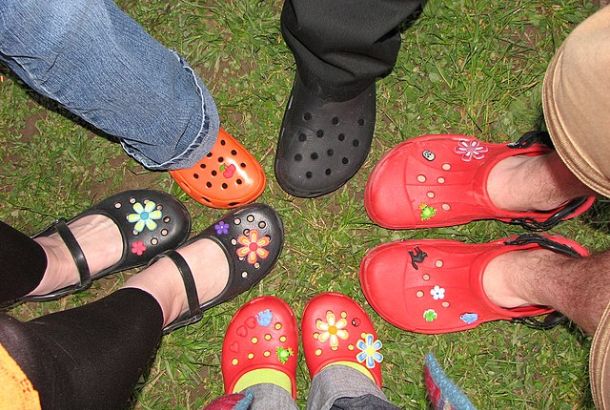“They should avoid dressing like sluts.”
By Anna Sopel
What does it mean to dress like a slut? Back in the day, being a slut meant being a bit slovenly and messy, but today the word has taken on a whole different meaning. The English Oxford dictionary informs me that being a slut means “a woman who has many casual sexual partners”, and that dressing slutty is a manifestation of this. Have you ever gone out in a pair of denim hot pants and a crop top, or a tight dress revealing your cleavage? The chances are, you’ve dressed up for a night out in a ‘slutty’ manner, I know for sure that I have. If dressing ‘slutty’ merely means dressing in a provocative and sexually attractive manner, then I’m sure the majority of women for most of human history and across different cultures have done this at some point. So what is the motivation for a woman to dress in this ‘slutty’ way? Because she can and it feels good? Absolutely. To catch someone’s eye? Most likely. To impress her friends or a man? Probably. To be sexually harassed? Nope, never.
Being dressed sluttily, sexily, provocatively, whatever you want to call it, has for too long been used as an excuse for the disgusting, but all to frequent occurrence of men sexually harassing women. One of the most famous examples of this was when a Canadian police officer, Constable Michael Sanguinetti suggested that in order for women to remain safe “they should avoid dressing like sluts”. This kick started a global campaign called SlutWalk in which participants protest against explaining rape by referring to any aspect of a women’s appearance. According to SlutWalk Manchester “We are tired of being oppressed by slut-shaming; of being judged by our sexuality and feeling unsafe as a result. Being in charge of our sexual lives should not mean that we are opening ourselves to an expectation of violence, regardless if we participate in sex for pleasure or work, or if we choose not to have sex at all”.
Unfortunately sexual harassment is an all too common part of daily life, and statistics would suggest it is something you, your friend, your sister, or your mother may have experienced. This doesn’t always mean rape, it may be someone pinching your bum in a club, a man shouting at you in the street to ‘get your tits out’ or a guy commenting on a facebook photo that ‘she’d get it’. I don’t care if a woman is dressed in tiny bum-revealing hot pants and a crop top, she isn’t asking for it. I don’t care if a woman is dressed in a skin-tight, boob and bum accentuating dress, she isn’t asking for it. I don’t care if a woman goes out dressed in a skimpy bra and a thong, she is NEVER asking for it (although she may be asking for pneumonia).
The University of Manchester has recognised this is a problem and as a result has launched the We Get It campaign. This campaign seeks to spread awareness for the fact that sexual harassment happens on campus in everyday situations. The campaign urges people to take a pledge that they will stand up against and report sexual harassment whenever they see it. The campaign has also launched the must-have accessory for this Spring, a We Get It wrist band which every person who takes the pledge will receive. Sign the pledge at wegetit.nationbuilder.com and get yours!







